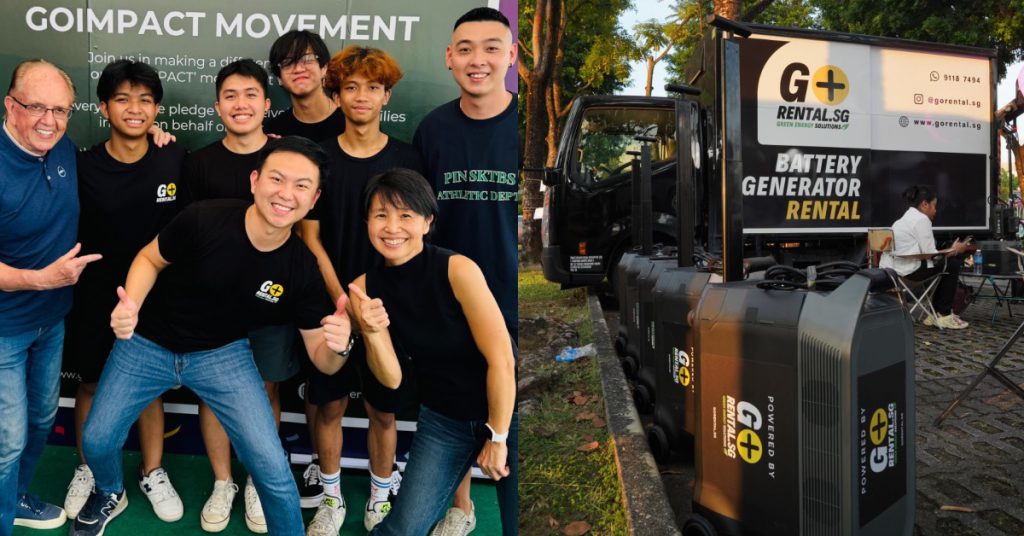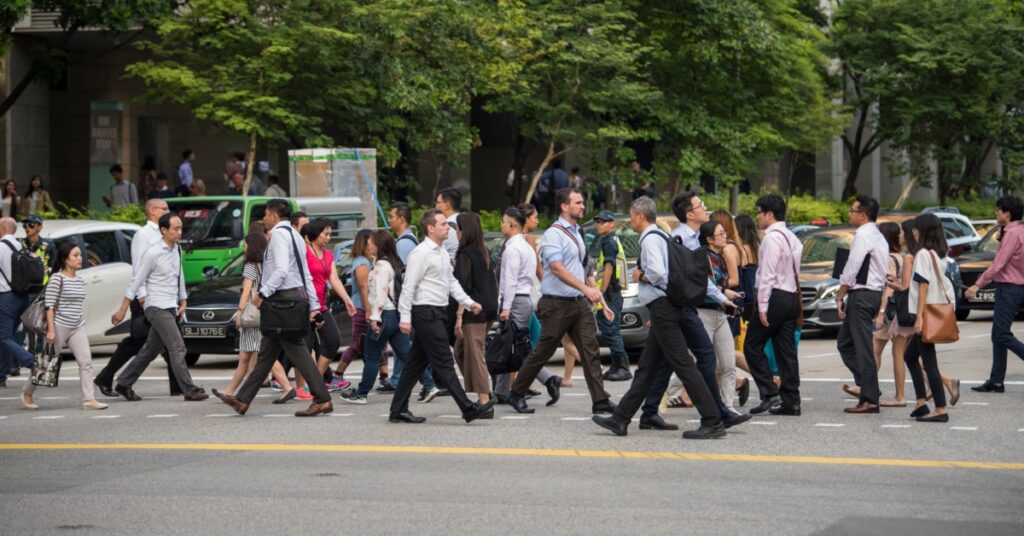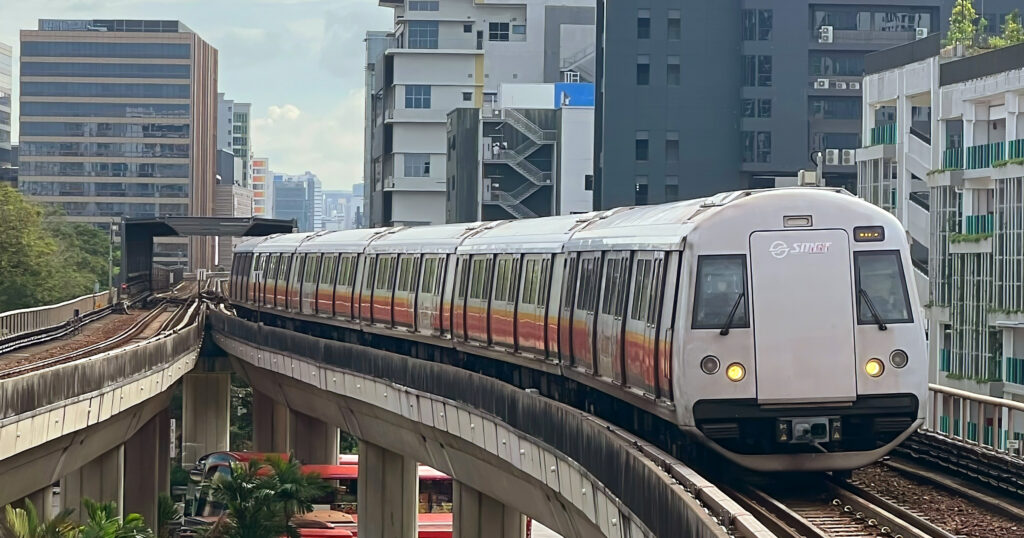When Singapore’s National Day Parade lights up the Marina Bay skyline, or the World Christmas Market and Singapore River Festival transform the city with dazzling displays, few think about what goes on behind the scenes.
From light displays to sound systems, video screens, and interactive exhibits, every detail demands reliable, high-capacity power.
Powering these events is GoRental. Established in 2017, it is Singapore’s first clean, portable power business offering battery generator rentals for a wide range of applications. Its sustainable energy solutions can cost over 100 times the typical grid rate—yet demand for GoRental’s services continues to grow, with the company being appointed the official energy partner for major events in the city-state.
Financially, the company is also on an upward trajectory. In the past year alone, GoRental reported S$3.5 million in revenue, and is aiming to more than double that figure this year, targeting S$8 to S$10 million.
We spoke to Colin Peh, the 37-year-old founder behind the business, to learn what’s driving demand for clean, portable energy and how GoRental is fueling its growth.
From filmmaking to sustainable energy solutions
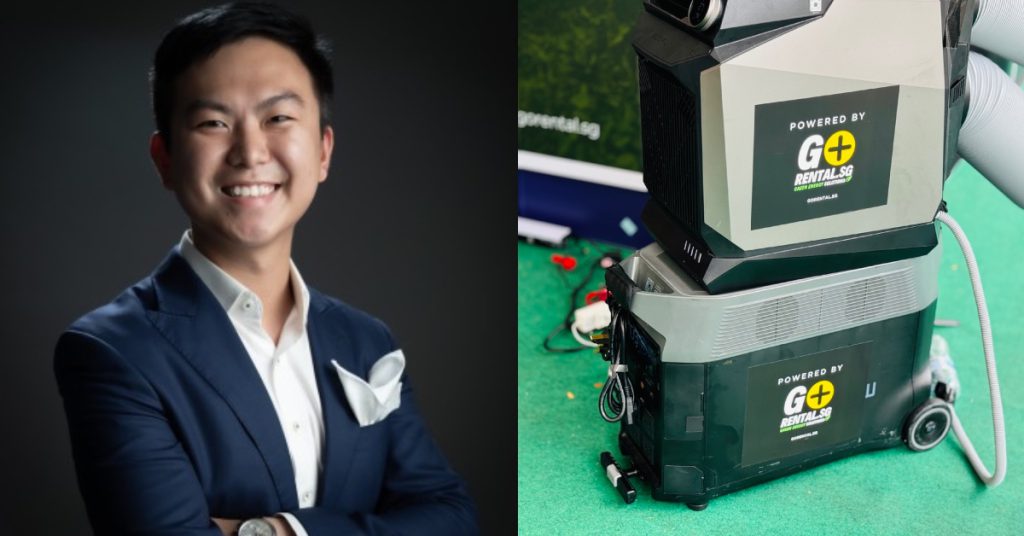
Colin’s career began far from the sustainable energy space. He initially started out as a filmmaker and, in 2014, founded film equipment rental house True Colour Media Group.
Over the years, his business has expanded into technical support for productions, completing over 5,000 projects with local and international names, including Jack Neo’s Ah Girls Go Army and Netflix’s The Raincoat Killer.

But it was during these productions that Colin discovered a recurring and costly problem: power. Film sets run on electricity, and everything—from lights, cameras, monitors, and fans to makeup tools and even coffee machines—requires consistent, dependable power.
For decades, diesel generators were the industry standard. They were reliable, yes, but also noisy, bulky, and slow to deploy. Even the smallest generators weigh a minimum of 165kg (not accounting for added fuel and coolant weight), necessitating wheels just to move them. They also emit noxious fumes and carry risks of fire and fuel leaks.

Colin soon realised that the inefficiency of diesel generators extended far beyond film, too. For instance, these units were also utilised to power pasar malams, but typically, a single large generator was deployed to run the entire market.
As a result, stall owners had no way to monitor individual electricity usage, yet each paid the same rental fee regardless of actual consumption. For many operators, this made diesel generators both costly and impractical.
On top of that, renting these units also often comes with hidden costs. Rental prices start from S$60 per day, but Colin shared that one could incur additional charges for refuelling, maintenance, cabling and more.
These frustrations sparked an idea. Colin began to wonder: what if there were a smaller, cleaner, quieter, and more cost-efficient way to power film productions and small-scale events? That question eventually led to the launch of GoRental.
Building smarter, cleaner batteries
At the time, the global momentum was beginning to shift towards renewable energy and electric vehicles.
Riding this wave, Colin explored alternatives to fossil-fuel-powered diesel generators and began researching battery technology. He even travelled to China to meet with manufacturers and study how batteries could be scaled for practical, portable use.
These efforts have required significant investment. To date, GoRental has poured around S$4 million into research and development, according to Colin.
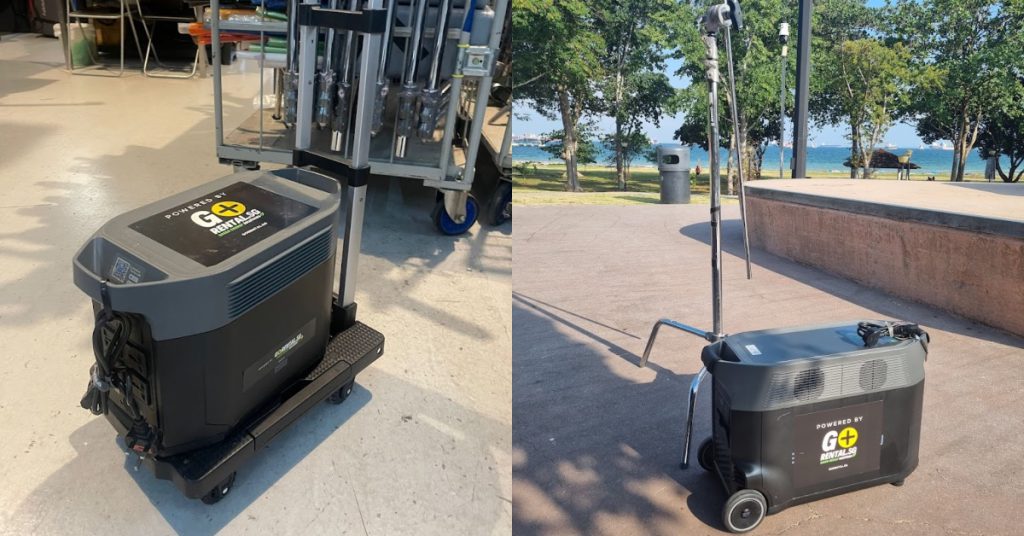
Currently, GoRental operates out of a sprawling 26,000-square-foot facility in Singapore. Its batteries are OEM-produced, but Colin shared that he integrates his own technology into them to enhance performance.
For instance, his battery generator packs have advanced from lasting 800 charge cycles to more than 6,000 over the years, making them far more sustainable over their lifespan and reducing electronic waste. In addition, the company is in the process of transitioning from conventional lithium-ion packs to solid-state batteries, which are regarded as much safer.
To provide customers with greater flexibility, GoRental also carries established battery brands such as EcoFlow and Bluetti.
In terms of pricing, GoRental charges businesses from S$40 per kWh for battery rentals, with higher rates for smaller-scale users. Delivery and setup fees are additional and vary depending on timing and location.
This is more than 100 times the national grid’s average of S$0.30 per kWh; however, Colin highlighted that when factoring in size, fuel, transport, setup, noise, emissions and maintenance, GoRental’s battery packs quickly become more cost-effective than diesel generators.
Battery packs are also available for purchase on GoRental’s website, starting at S$399 for 245Wh without warranty.
Powering every need, everywhere
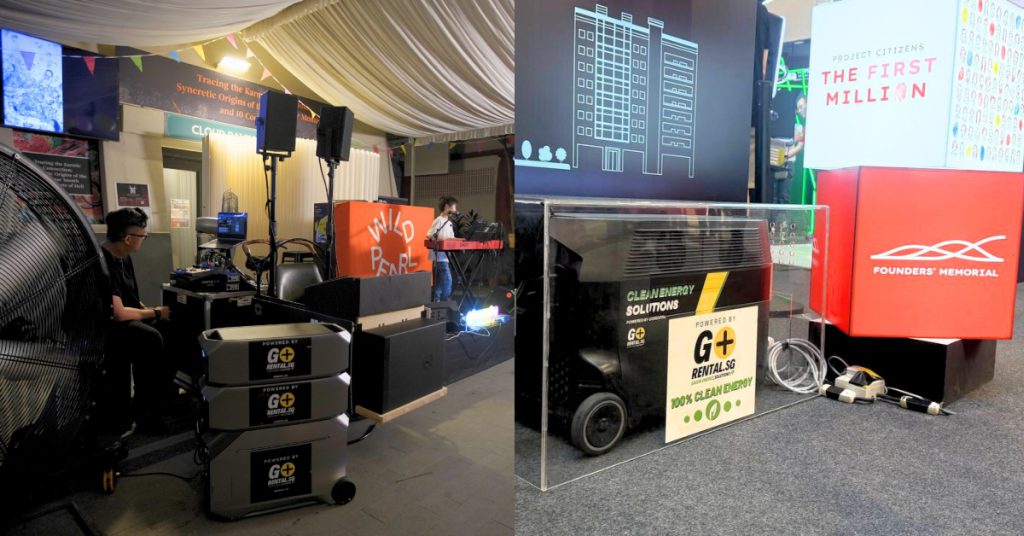
To date, GoRental has supplied its batteries to nearly 200 events—but its services extend far beyond just event organisers. The company has also supported clinics needing to keep medicines refrigerated, shops that can’t afford downtime, and small-scale events often overlooked by traditional diesel generator providers, among others.
One of its many long-term clients is SATA CommHealth, a healthcare organisation that subscribes to GoRental’s Uninterrupted Power Supply (UPS) battery generators that automatically kick in as backup power during power outages with zero downtime.
Demand has also spread into unexpected sectors. Landscaping firms, for instance, now use GoRental’s solutions to replace diesel-powered cutters and mowers, reducing pollution and sparing workers from harmful fumes.
And in emergencies, GoRental has stepped in where the grid or other providers couldn’t.
Colin still remembers one of his first calls: a young girl whose flat had suffered a blackout. With no power, her grandmother’s oxygen machine had stopped, and even the family’s pet fish was at risk. GoRental rushed in with backup power, saving both lives in the process.

As for its impact in reducing carbon emissions, GoRental has made significant strides.
For last year’s World Christmas Market and Singapore River Festival, after-sales reports show that a total of 74,000 kg of carbon emissions were avoided, with 30,000 kWh of clean energy supplied to power these large-scale events.
This year alone, the company supplied 1,312 kWh of clean energy across NDP rehearsals, National Education Shows, and the parade itself, cutting 4,330 kg of carbon dioxide in the process.
Every one of GoRental’s clients receives a detailed after-use report showing exactly how much energy was consumed and how charges were calculated, helping them identify and trim unnecessary energy costs for future events.

GoRental has also extended its impact abroad. In the remote village of Huay Naam Rin, Northern Thailand, the company installed solar panels and provided portable battery generators for 60 residents without grid access.
Villagers can now power lights and watch television without relying on costly diesel generators or kerosene lamps. The initiative also caught the attention of local authorities, who have since stepped in to provide additional support to the community.
Apart from this, the company has also chartered into Malaysian waters in 2022, establishing solar facilities in Johor to cater to portable energy needs of plantations and construction sites, just five months after the bilateral agreement of the Johor-Singapore Special Economic Zone.
Making clean energy accessible
As Singapore increasingly adopts green solutions, GoRental has become a trusted partner for clean, compact, and scalable power.
According to Colin, demand from event companies has grown 60 to 70% year-on-year, and the company now works with various government agencies to power their programmes, all while remaining a profitable business.
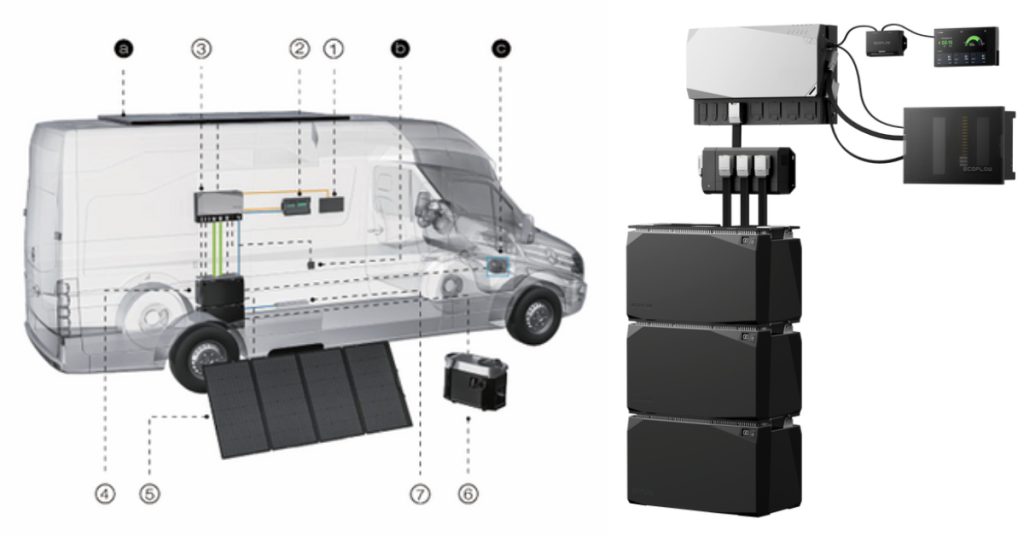
Beyond stationary power, GoRental is also promoting clean energy on the move. It has developed a system that can be installed in vehicles—whether diesel, petrol, or electric—turning them into mobile power sources. Applications include food trucks, recreational vehicles, library buses, and defence vehicles.
Apart from this, the company is also looking into powering homes. At a recent pilot at Vidacity, Pasir Ris, GoRental showcased a solar-powered, off-grid micro-home with backup battery storage, attracting international visitors, particularly from regions like Malaysia and Indonesia.
With these solutions, GoRental hopes to make clean, reliable energy more accessible—whether for events, mobile applications, or homes—while lowering carbon emissions.


